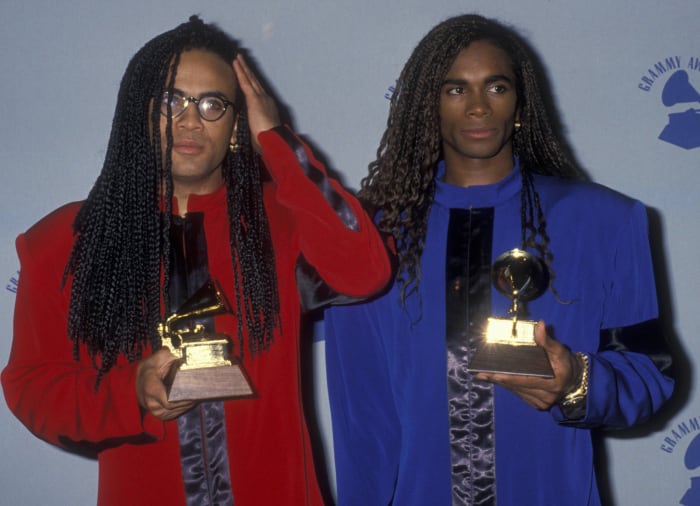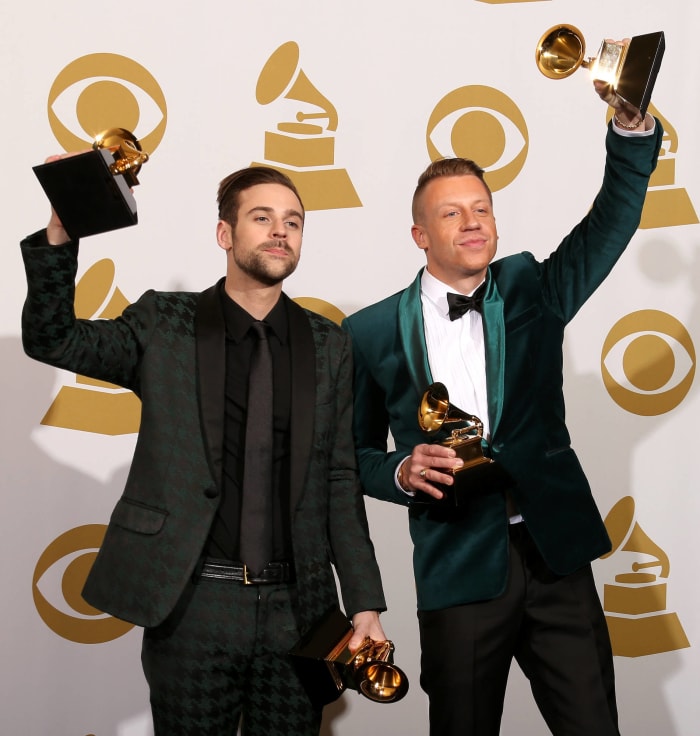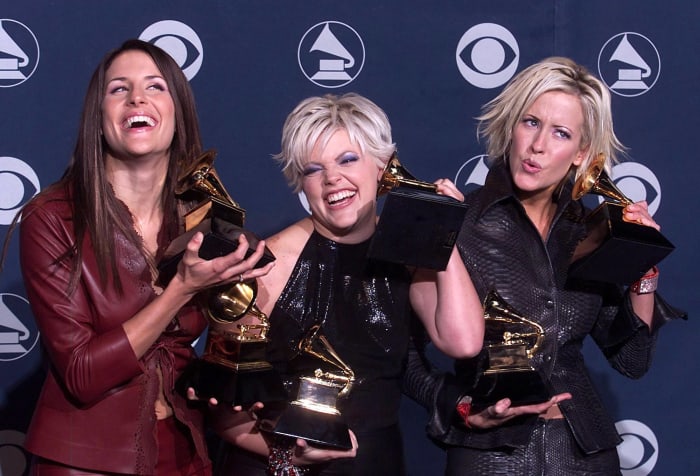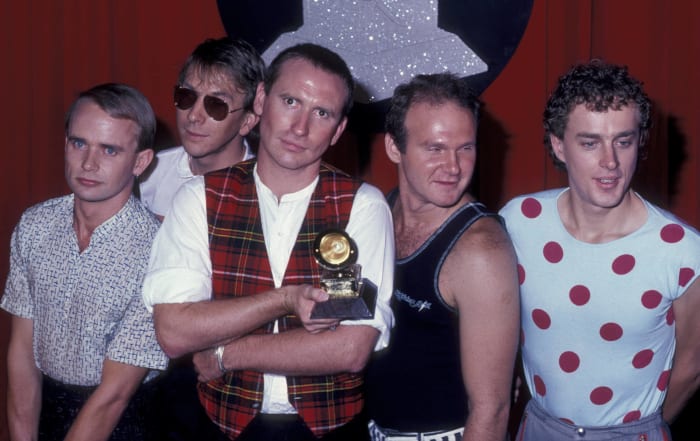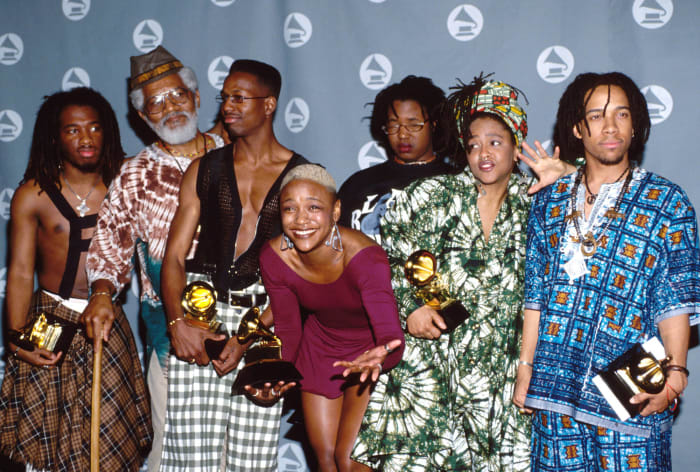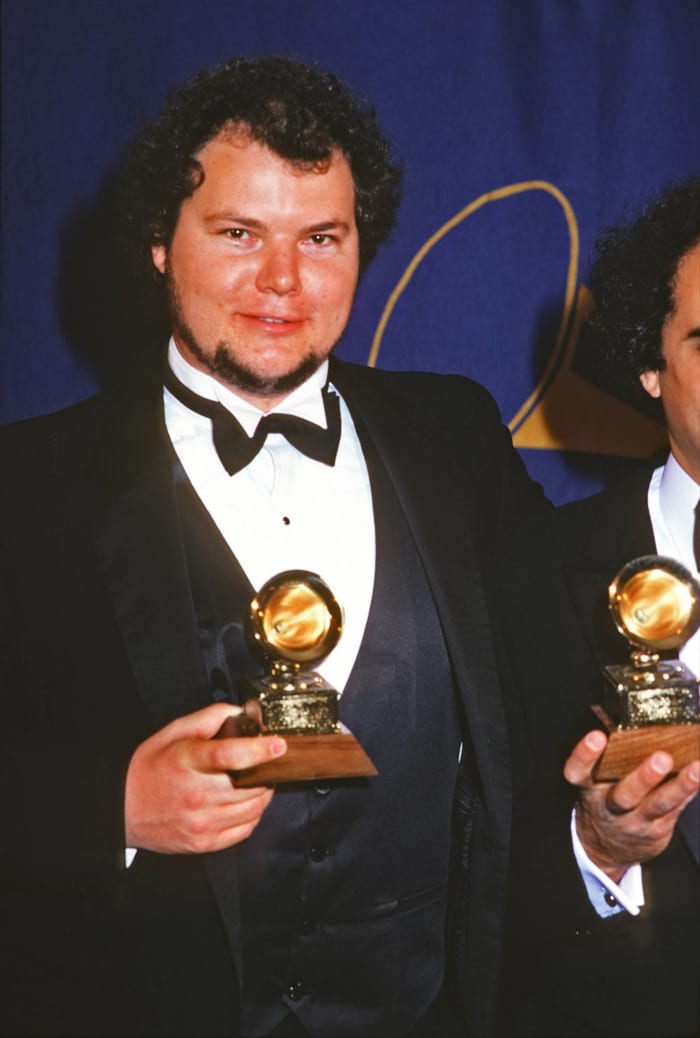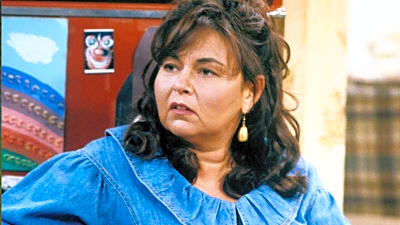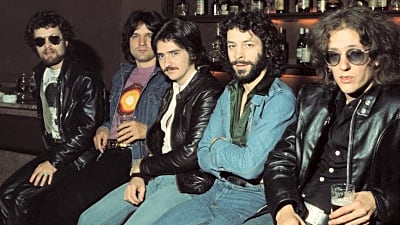Winning a Grammy doesn't guarantee a long and successful career in music. From losing bandmates to infighting, changing musical styles and few winners who were reluctant stars to begin with; here are some of the most notable Grammy winners for whom things took a downward turn after winning the award.
Ron Galella/WireImage/Getty Images
It’s the greatest Grammy embarrassment of all time and unlikely to ever be topped. Less than a year after winning Best New Artist at the 1990 awards ceremony, the stupidly handsome German dance-pop duo of Fab Morvan and Rob Pilatus were revealed as imposters — it turns out they hadn’t performed any of the vocals on their multiplatinum debut album, "Girl You Know It’s True." Grammy organizers quickly took back their trophy, the only time that’s ever happened.
2 of 20
Macklemore and Ryan Lewis
Dan MacMedan/WireImage/Getty Images
Winning four awards at the 2014 Grammys might have been the worst career move for this Seattle hip-hop duo. By beating Kendrick Lamar for Best Rap Album, Best Rap Song and Best Rap Performance, the indie up-and-comers saw public perception of them shift immediately – they went from lovable indie outsiders to cultural imperialists overnight, serving as a largely unheeded preview of the 2017 #GrammysSoWhite firestorm. Macklemore’s insistence that Lamar deserved the award wasn’t enough to repair the damage. Macklemore and Lewis’ poorly received second album prompted the announcement that the act was going on official hiatus.
Leon Neal/AFP/Getty Images
At the 2009 Grammys, the Welsh retro R&B singer Duffy won Best Pop Vocal Album (for her debut, "Rockferry") and was nominated for Best New Artist. She lost that one to Adele, who has taken a similarly vintage-styled act to stratospheric success, while Duffy has been largely silent since 2010.
Vince Bucci/AFP/Getty Images
Just weeks after winning three awards at the 2003 Grammys, the Dixie Chicks faced an unprecedented unofficial blacklist by the country music industry for Natalie Maines’ public criticism of President George Bush and the U.S. invasion of Iraq. The Chicks ultimately crossed over to a new audience — and ended up winning five Grammys, including Album, Record and Song of the Year in 2007 — but the band’s future seemed seriously threatened at the time of the controversy.
Steve Granitz/WireImage/Getty Image
The harmony-vocal/pop-rock trio fun.’s 2013 Grammys for Best New Artist and Song of the Year (“We Are Young”) seemed like the beginning of a major career. Instead, it’s starting to seem like a final chapter. The group’s members announced in 2015 that they were all pursuing solo projects, such as "The Grand Romantic," an album from lead singer Nate Ruess.
Peter Pakvis/Redferns/Getty Images
Not so much a fizzle as a creative exile. The former Fugees frontwoman, who won five Grammys in 1999 (including Album of the Year, Best R&B Album, and Best New Artist), retreated from the public eye for four years after the release of "The Miseducation of Lauryn Hill." She’s recorded and performed sporadically since then, solo and with her former group, but it’s been an unpredictable arc.
Ron Galella, Ltd./WireImage/Getty Images
The Australian pop-rock band Men at Work was one of the biggest early MTV success stories with the New Wave-ish hits “Who Can It Be Now?” and “Down Under.” But the pressures of celebrity (and a 1983 Best New Artist Grammy) got to the group — their dud third album, "Two Hearts," was followed by a 10-year hiatus.
8 of 20
Arrested Development
Kevin Mazur/WireImage/Getty Images
Atlanta’s Arrested Development introduced conscious rap and Southern hip-hop to MTV and the Billboard charts in 1992 with “Tennessee,” from their debut album "3 Years, 5 Months and 2 Days in the Life Of…" But the lackluster response to 1994 follow-up, "Zingalamaduni," led the group to break up. They’ve remained active since a 2000 reunion but have failed to make a commercial impact.
Michel Linssen/Redferns/Getty Images
Folk singer-songwriter Marc Cohn’s 1991 Best New Artist award is an all-time Grammy head-scratcher. Cohn — who surprisingly beat out Boyz II Men for the award — has followed the modest success of his self-titled debut album (and the single “Walking in Memphis”) with an intermittent series of increasingly more modest albums in the years since.
Carlo Allegri/Getty Images
The veteran Texas blues-rock-playing Garza brothers went from journeymen to superstars in 2004 with the unexpected success of “Heaven,” their first single under the name Los Lonely Boys. It’s still their biggest hit.
Allan Tannenbaum/IMAGES/Getty Images
The Australian disco-rock trio comprising the brothers Gibb came out of nowhere with the global multiplatinum smash "Saturday Night Fever" soundtrack, but their overnight stardom and late-’70s ubiquity also helped usher in the death of disco. After the residual success of "SNF" sequel, "Staying Alive," in 1983, the Gibbs fell victim to exhaustion, infighting and a hostile pop market. It would take more than a decade for Gen X nostalgia to rehabilitate the group’s biggest hits.
Jeff Kravitz/FilmMagic/Getty Images
The resilient Arkansas hard-rock band, led by pianist/vocalist Amy Lee, has managed to hit the top 10 with each of its four albums. It’s the time in between records that proves challenging for the group, which has had a revolving door of membership since its 2003 hit debut, "Fallen." Lee is the only original member of the band left, and the constant turnover has led to two lengthy official hiatus periods and long delays between albums, prompting regular speculation about the group’s future.
13 of 20
A Taste of Honey
Michael Ochs Archives/Getty Images
A textbook example of disco mania and one-hit-wonder syndrome, the L.A. R&B/dance group A Taste of Honey spent years on the club circuit before scoring their only memorable hit — and a Best New Artist Grammy — 1978’s “Boogie Oogie Oogie.”
Samir Hussein/Redferns via Getty Images
George Michael was one of the defining pop artists of the 1980s, first as half of Wham! and then as a solo artist. The ’90s and ’00s were a difficult period for him, as he struggled with a changing pop landscape, unsuccessfully sued his label and faced multiple arrests for drugs and public sex. He still managed big event singles and all-star pop collaborations, but there were far more misses than hits during the last decade of his life.
Jeff Kravitz/FilmMagic/Getty Images
Be careful what you wish for. The L.A. vocal pop quartet All-4-One had a No. 1 Grammy-winning hit in 1994 with “I Swear,” just their second single, and spent the rest of the decade chasing similar success, with no luck.
TIMOTHY A. CLARY/AFP/Getty Images
Folk singer and Lilith Fair alum Paula Cole’s distinctly minor league celebrity rests on two things: She’s yet another example of an ill-advised Best New Artist Grammy (beating out Erykah Badu, Sean Combs and Fiona Apple in 1998) and “I Don’t Want to Wait,” which became the theme song for "Dawson’s Creek."
Gie Knaeps/Getty Images
It took a while for D’Angelo to fulfill the promise of "Voodoo," his breakthrough 2000 neo-soul masterpiece. When he finally got around to following it up — after more than a decade marked by false starts, a retreat from the public eye, a DUI arrest and rumors of increasingly eccentric behavior — the wait was worth it. The apolitically charged "Black Messiah," from 2014, expanded on the funky neoclassical R&B of "Voodoo" with a broad range of influences and inspiration, from jazz and hip-hop to rock and soul.
18 of 20
Rickie Lee Jones
Kirk West/Getty Images
Ingénue singer-songwriter Rickie Lee Jones found unexpected success (and a 1980 Grammy) with her first two albums of bohemian folk-jazz. But her restless experimentation and refusal to play it safe have consigned her to a career as a cult artist.
19 of 20
Christopher Cross
Allan Tannenbaum/Getty Images
The Grammy darling of 1980 won five awards, primarily on the strength of his self-titled debut album and the soft-rock hit “Sailing.” Cross had one more major hit, “Arthur’s Theme (Best That You Can Do),” in 1981, which also won the Academy Award for Best Original Song. But he hasn’t come close to his initial blockbuster success since.
Michael Ochs Archives/Getty Images
Twenty-year-old Debby Boone ably carried on the family tradition established by her father, ’50s pop schmaltz specialist Pat Boone, by turning this blandly chaste romantic ballad into the biggest pop single of the 1970s (and winning the 1977 Best New Artist Grammy in the process). Boone had some minor success on country radio in the 1980s before committing to contemporary Christian music.
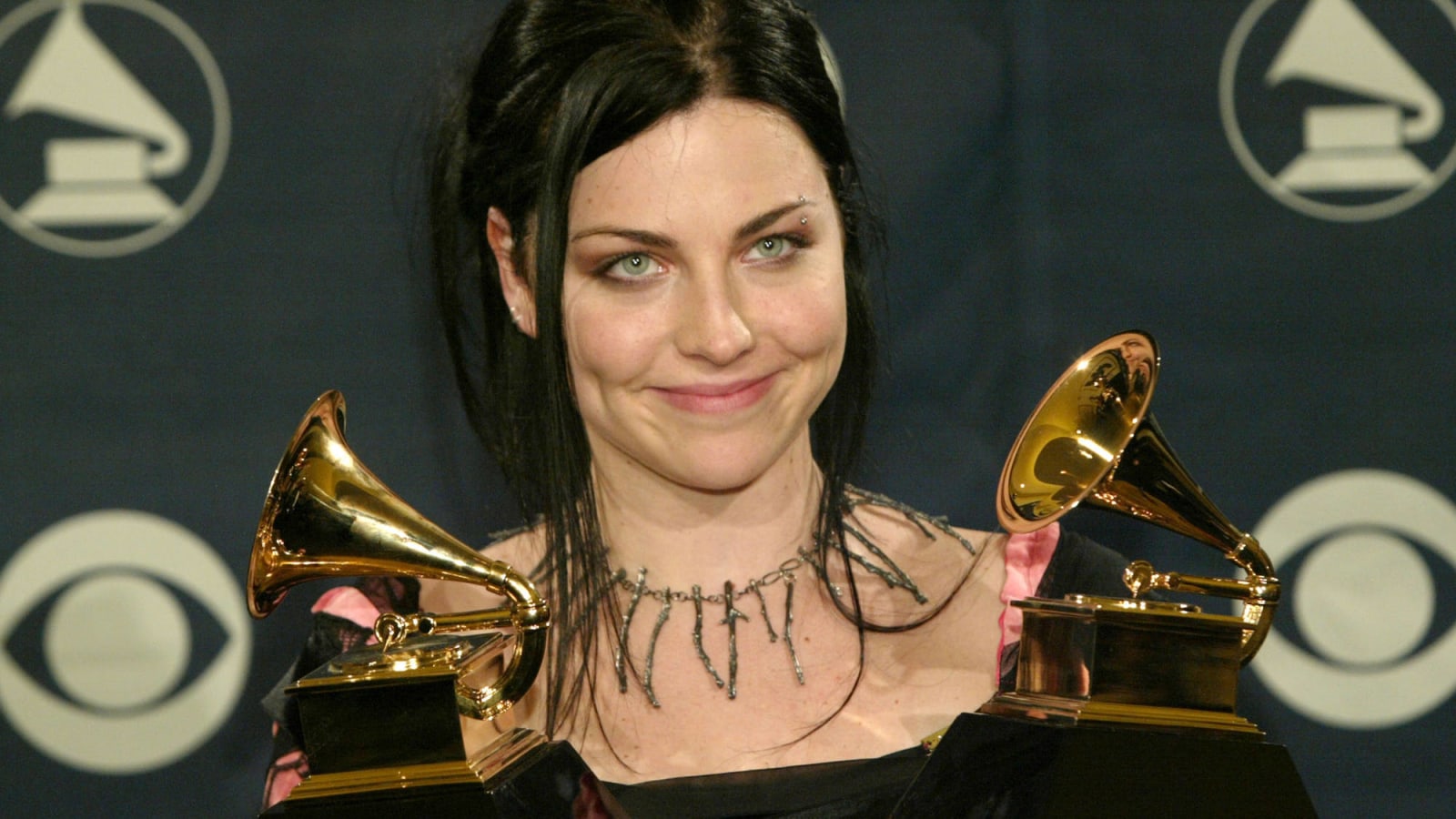
 +
+
